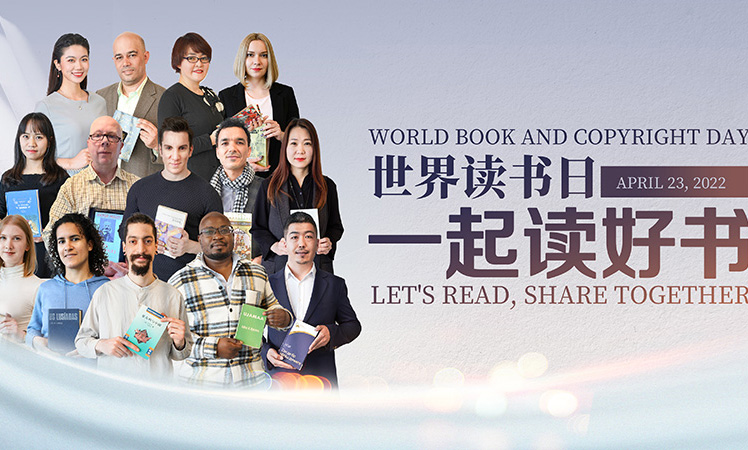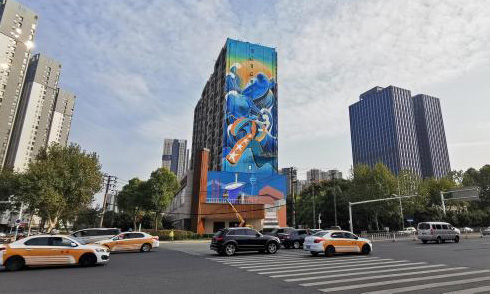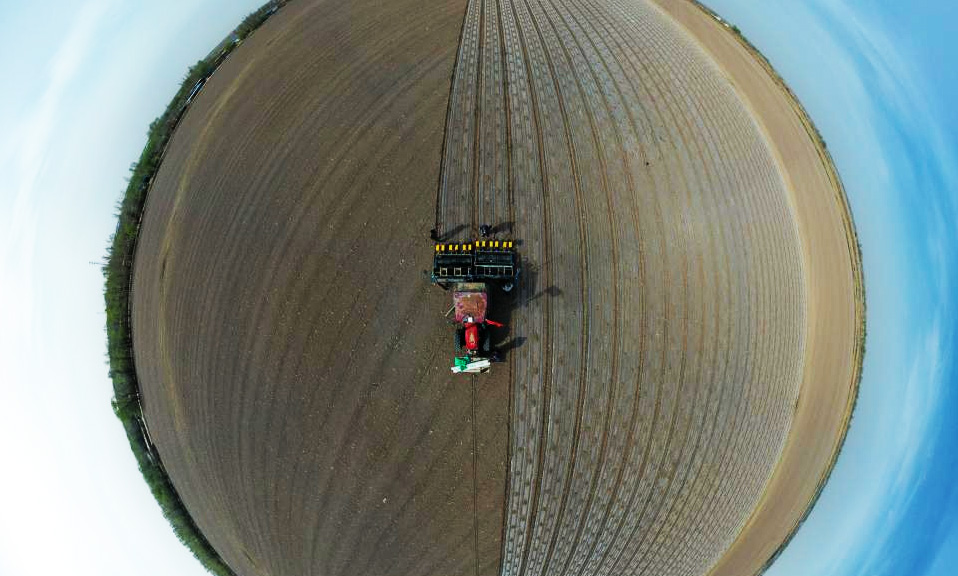Inheritor of bamboo weaving integrates intangible cultural heritage with rural revitalization
Yang Changqin, an inheritor of Chishui bamboo weaving, a provincial-level intangible cultural heritage item in southwest China’s Guizhou Province, has combined the traditional craft with rural revitalization and has come up with innovative methods to revive the handicraft.

Yang Changqin processes a bamboo pole. (Xinhua/Yang Wenbin)
Born in the 1990s, Yang, a woman from the Miao ethnic group, is from Chishui, a city with about 1.33 million mu (88,667 hectares) of bamboo forests, located in Guizhou.
In 2007, Yang graduated from a school training kindergarten teachers and had the option of working in a public kindergarten. However, she chose to learn Chishui bamboo weaving techniques from a bamboo weaving master in the city because of her deep interest in the traditional craft and decided to master it herself.
It’s not easy to learn bamboo weaving skills. In the beginning, Yang often hurt herself during the learning process. Thanks to her perseverance and hard work, she was eventually recognized as a provincial-level Chishui bamboo weaving inheritor.
Supported by the municipal government of Chishui city, Yang founded her bamboo weaving company in 2012 and named it “Hand in Hand,” hoping that she could offer job opportunities to more local women.
Yang has organized multiple bamboo weaving training courses for local residents. Wang Congfang, 21, one of Yang’s trainees, has become a full-time employee in her company. According to Wang, she learned bamboo weaving skills from Yang for three months since March 2018 and has worked in the company for four years.

Yang Changqin presents bamboo filaments as fine as human hair. (Xinhua/Yang Wenbin)
“Many of my fellow villagers learned the skills from Yang and received subsidies,” Wang said.
Yang has integrated the traditional bamboo weaving craft into modern-day life using innovative methods. She took classes at fine arts institutes in a number of cities, including Shanghai, and then applied her newfound knowledge to the weaving craft, creatively launching a series of bamboo handicrafts, including bamboo-woven porcelain, calligraphy and paintings, bags and ornaments. These bamboo products prove popular and sell well domestically and internationally.
“Traditional crafts can be better inherited through modern-day innovations,” Yang said.
“If a bamboo pole is sold as a raw material, it can fetch about 6 yuan (about $0.9). But after going through more than 20 procedures, such as stripping, dyeing and weaving, it is turned into various bamboo-woven handicrafts, which can be worth hundreds or thousands of yuan,” Yang explained.
Thanks to Yang’s efforts in preserving traditional bamboo weaving and helping locals live a better life, she was elected as a deputy to the 13th National People’s Congress in 2018.
One year later, Yang established a bamboo weaving, research and training base in Minzu village, Datong town of Chishui city.
Yang’s company had an output value of more than 10 million yuan in 2021, with 34 registered trademarks and 12 invention patents. The company helped 570 people from 177 households to increase their incomes.
“We hope to further boost the development of the bamboo weaving industry in Chishui city and the integrated development of the traditional craft and rural revitalization,” Yang said.
Photos
 World Book Day: Let's read together
World Book Day: Let's read together Rare silver pheasants flock together in greater numbers to forage at Yishan nature reserve in east China's Jiangxi
Rare silver pheasants flock together in greater numbers to forage at Yishan nature reserve in east China's Jiangxi Young artist takes up brush to create lifelike paintings expressing mankind and nature’s harmonious co-existence
Young artist takes up brush to create lifelike paintings expressing mankind and nature’s harmonious co-existence Cutton farming in full swing in China's Xinjiang
Cutton farming in full swing in China's Xinjiang
Related Stories
Copyright © 2022 People's Daily Online. All Rights Reserved.






